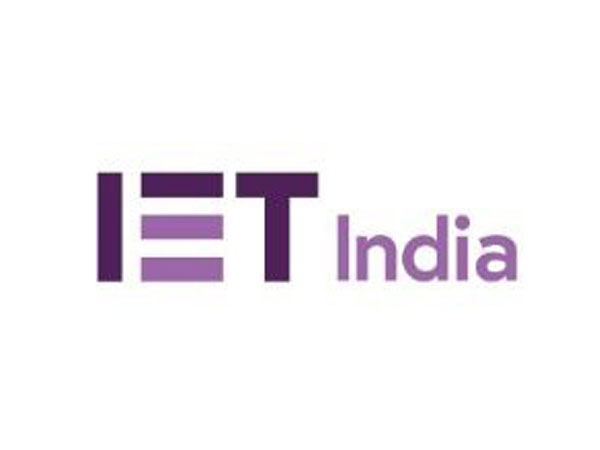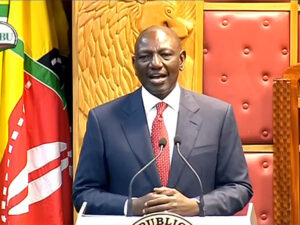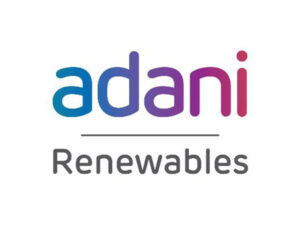
Bangalore (Karnataka) [India] February 1 (ANI/NewsVoir): The union budget 2021 is a crucial one as the country and economy rebounds after an unprecedented pandemic. Expert volunteers of the IET and the Country Head and Director of IET India react to the budget and its provisions.
Welcoming the provisions of Union Budget 2021, Shekhar Sanyal, Country Head and Director, IET India said, “There is no doubt that the past year was one of the toughest years in post-independence history and therefore this budget is a crucial step in building a post-pandemic India. The 6 pillars presented by the honourable finance minister – Health & Well-being, Inclusive Development, Human Capital, Innovation and R&D are areas of national importance and the underlying thread of self-reliance in these areas is noteworthy.”
“The proposal to start a world-class fintech hub in Gujarat with a potential to provide 150,000 jobs is commendable. However, developing skilled workers to fulfil these vacancies is an area that needs greater detailing. It is reassuring to see that Social security benefits to gig economy workers feature in the budget speech. The IET has been a vocal supporter of this notion since 2019. Initiatives like a completely digital census, strategy to focus and develop hydrogen fuels, and announcement that AI, Machine Learning and Data Analytics will form the core of Ministry of Corporate Affairs portal are all succeeding in giving the right feelers about a technology enabled, future-forward India that is in the offing. The IET and its volunteers look forward to contributing positively to these ambitious plans and roadmaps in 2021,” Sanyal added.
“I believe that this budget has established an important milestone for the use of technology to make India ‘Aatmanirbhar’ and future-ready. Technology is not only laying the foundation of a stronger Indian economy by plugging revenue leakages for the government and enabling good governance, it is also improving citizen services manifold. Right from announcement of this budget being a digital budget by Finance Minister Nirmala Sitharaman, the positive impact of using Artificial Intelligence (AI) and connected technologies in governance has resulted in record GST collections in last few months. We will also have our first digital census this year which is indeed a big revolution in India’s census exercise. This will make the process faster, eliminating human errors with the use of mobile application rather than pen and paper,” said Dr Rishi Mohan Bhatnagar, Chairman, IET Future Tech Panel and President, Aeris Communications.
“The budget with Sankalp of Aatmanirbhar Bharat focusing on the six pillars of health and well-being, physical and financial capital and infrastructure, inclusive development for aspirational India reinvigorating human capital, innovation and research and development, minimum government, and maximum governance; has significant allocation for sectors like healthcare, agriculture, poverty reduction and innovation. It builds on the foundational pieces of the previous budgets and can contribute significantly to livelihoods and social upliftment. Overall it takes steps in the right direction, especially in light of the after effects of the pandemic. The social impact working group of IET Future Tech Panel is keen to reflect these national priorities in our activities,” said Digvijay Choudhari, Chair-Social Impact Working Group, IET Future Tech Panel; CEO and Managing Director, Sobus Insight Forum.
“The commitment from the government to ensure safe drinking water to households across India is much appreciated and this needs participation across stakeholders to succeed. Two things that are very important however for the Jal Jeevan Mission (JJM) to succeed and therefore additional attention to be paid, will be: water security i.e sustainability of the water sources from which water supply is planned, and secondly, safety of water at the tap level from the water quality standpoint. Both of these are issues for which community participation is essential and this is where emerging technologies can play a significant role in reaching out at scale very quickly. It is also good to see that innovation on this front is being paid increasing attention and this will help solutions to happen and sustain over the long term,” said Sunderrajan Krishnan, Member-Water Working Group, IET Future Tech Panel; Executive Director, INREM Foundation.
Mustafa Wajid, Chair, Steering Committee, IET Future of Mobility and Transport Focus and CEO, Meher Group said, “The Budget is a holistically encouraging one, given the economic challenges and constraints facing our country in the backdrop of the pandemic. Acceleration of economic recovery may be expected. From a mobility and transport standpoint, the Union Budget 2021 has many promising initiatives. We particularly welcome the long-term focus on improving public transport infrastructure – continuing investments in metro-rail projects in cities of Bangalore and Chennai and in non-metro cities of Nashik, Nagpur and Kochi as well as impetus provided to over 25+ on-going metro projects nationally. Proposal to augment public bus transport infrastructure using public private partnerships is indeed an idea whose time has come. It will be interesting to see how these 20,000 proposed buses will ease the urban mobility scenario in India. Proposed outlays for MORTH and NHAI point to a nationwide strengthening of roads.
The proposed national rail plan for 2030 promises a future-ready, tech-enabled railway system for the country by 2030. Safety of our rail system has been improving and deployment of indigenously developed automatic train protection system is slated to improve it even further. The government’s commitment to clean and futuristic fuel sources is reflected in the Hydrogen energy mission 2021- 2022.”
The IET is one of the world’s largest engineering institutions with over 168,000 members in 150 countries. It is also the most multidisciplinary – to reflect the increasingly diverse nature of engineering in the 21st century.
The IET is working to engineer a better world by inspiring, informing and influencing our members, engineers and technicians, and all those who are touched by, or touch, the work of engineers.
Institution of Engineering and Technology – India
The IET office started operations in India in 2006, in Bangalore. Given the increasing global importance of India as an engineering hub their aim is to make an impact that has relevance both locally and internationally. Their strategy is to make a meaningful impact on the overall competency and skill levels within the Indian engineering community and play an influencing role with industry in relation to technology innovation and solving problems of public importance. The IET wants to do this through working in partnership with industry, academia and government, focussing on the application of practical skills within both learning and career lifecycles, driving innovation and thought leadership through high impact sectors.
This story is provided by NewsVoir. ANI will not be responsible in any way for the content of this article. (ANI/NewsVoir)


















